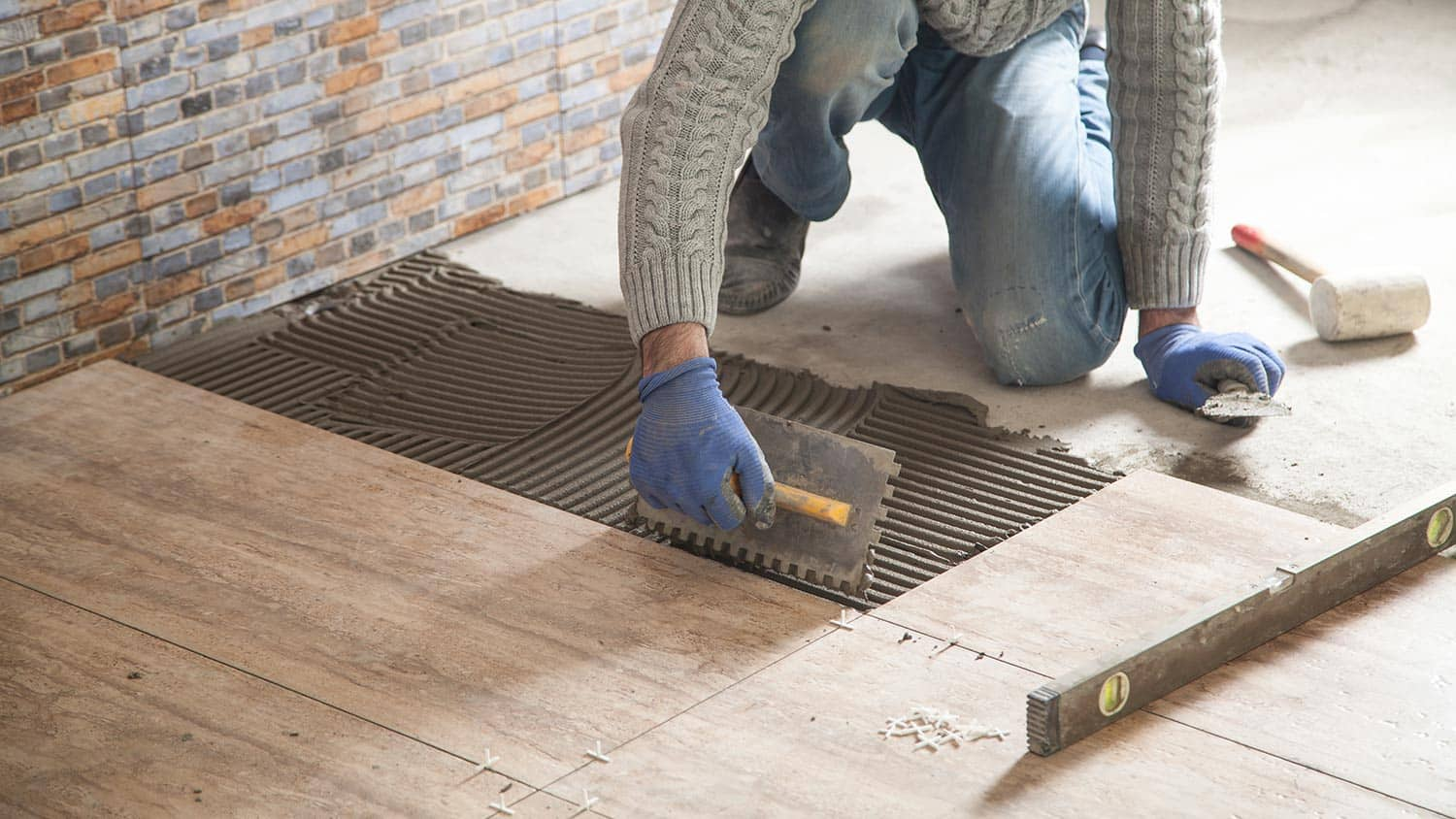Tiling your own home can be a gratifying project, offering both aesthetic satisfaction and the pride of personal craftsmanship. But even the most enthusiastic DIY enthusiast can encounter situations where continuing solo is less practical than hiring a professional.
This blog post will guide you through the decision-making process, helping you determine when it’s wise to keep going and when it’s best to call in the pros.
Knowing Your Limits: Assessing Your DIY Skills
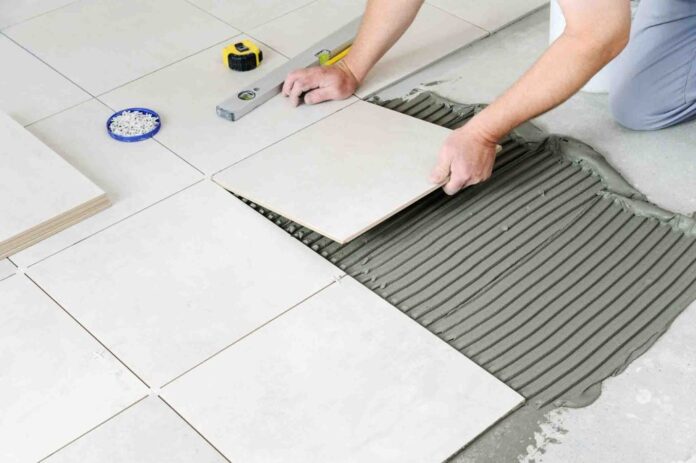
Understanding your abilities is crucial before you begin tile installation. For many, DIY tiling is an achievable task, particularly if the area involved is straightforward and the design simple. Simple projects like a small bathroom floor or a kitchen backsplash can often be tackled by amateurs who have done their homework.
However, if your project involves complex patterns or materials like natural stone, assessing whether your skill level matches the project’s demands is essential.
Having the right tools is as critical as having the skills. Tiling requires specific tools, such as a wet saw for cutting tiles, trowels of various sizes for spreading adhesive, and spacers for maintaining alignment. Preparation also involves understanding the surface you’re tiling.
Floors and walls need to be clean, level, and sturdy. If preparing the surface seems daunting or if acquiring the necessary tools is impractical, it might be time to consider a professional.
Confronting the Complexity: When Projects Become Overwhelming
It’s not uncommon to start a tiling project with enthusiasm, only to find that the physical labor or the technical precision required is overwhelming. When you’re spending more time figuring out what to do next rather than making progress, or when mistakes become more frequent, these are clear signs that the project might be too complex for your current skill set.
This might be the right moment to consider hiring a tile contractor, who can bring the necessary expertise and efficiency to manage the complexities that have stalled your progress.
These projects can be cost-effective, but they can also turn costly if mistakes occur. Misalignments, poorly cut tiles, or incorrect adhesive application can require buying more materials and starting over, not to mention the potential for damaging the underlying surfaces.
If you find yourself making multiple trips to the hardware store or discarding numerous tiles due to errors, it might be more economical in the long run to hire a professional.
Time Considerations: Balancing DIY Efforts with Daily Demands
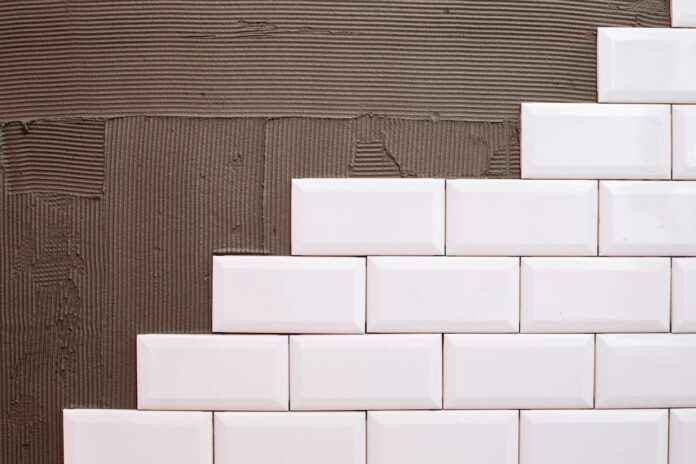
DIY projects are time-consuming, and tiling is no exception. It’s not just the installation; preparation and cleanup can significantly extend the timeline. For those with limited free time, a tiling project can drag on for weeks, disrupting daily life. Consider how much time you can realistically dedicate to this project, and whether it aligns with your schedule.
Material Matters: Understanding What You’re Working With
Some tiling materials are notoriously difficult to work with. Large format tiles, heavy natural stones, or tiles requiring special cutting techniques can pose significant challenges for DIYers. Each type of tile has its quirks—some may crack easily, others might require special adhesives, and some might be extremely heavy, making them difficult to handle and install without breaking.
Advanced Techniques and Finishing Touches
Some tiling projects go beyond the basics of laying down tiles. They might involve intricate patterns, mixing materials, or transitioning between different types of flooring. These advanced techniques often require not just skill but also a level of artistry. If your vision for the space includes any of these complex elements, it’s worth considering whether a professional could better bring that vision to life.
Estimating the Financial Break-Even Point
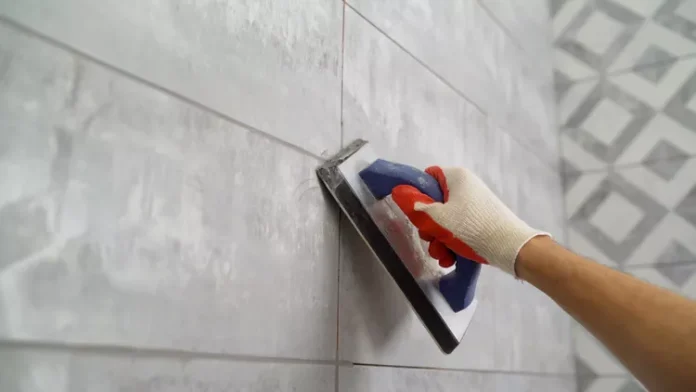
Estimating the total cost of a DIY tiling project includes more than just the price of tiles and adhesive. It requires an understanding of all ancillary expenses such as tools, underlayment, grout, and potentially rental equipment.
Comparing these costs to quotes from professional tilers can provide a clearer picture of potential savings—or lack thereof. If the DIY cost is only marginally less than hiring a professional, it may not justify the effort and risk of potential errors.
The quality of workmanship can significantly impact the long-term value and maintenance costs of tiled areas. Professional installation often comes with warranties and the assurance that the job will last without needing costly repairs.
Poor DIY installation might lead to issues like water damage or tiles coming loose, which can be expensive to rectify. Evaluating these factors can help determine if the initial savings of a DIY approach are truly cost-effective over time.
Addressing Legal and Safety Issues
Home improvement projects, including tiling, can be subject to local building codes and regulations. These rules might dictate the types of materials used, installation methods, and even the qualifications of the person performing the work, especially in areas prone to moisture or structural load considerations.
Failure to comply can result in fines or problems when trying to sell your home. Understanding these requirements can be a deciding factor in whether to hire a professional who is familiar with local regulations.
Tiling involves tools and materials that can pose safety risks, particularly for those who are inexperienced. The use of wet saws, for example, requires specific safety precautions to avoid injuries.
Moreover, the manual handling of heavy or large format tiles can lead to back injuries or other physical strain. Assessing one’s ability to safely manage these risks is crucial; sometimes, the safer option is to rely on professionals who are trained to handle these hazards effectively.
Maximizing Aesthetic Impact
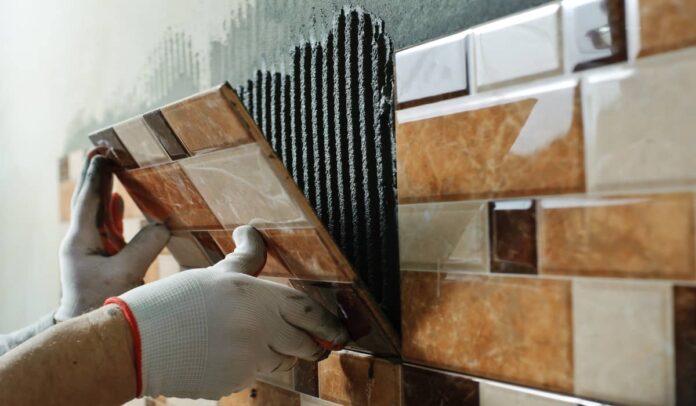
The choice of tiles and the design of the installation can dramatically affect the visual appeal of a room. While you might have a specific vision in mind, translating that idea into a practical design requires a keen eye for detail and a good understanding of how materials work together.
Professionals can offer design advice that maximizes aesthetic impact, taking into account factors like room size, lighting, and overall home decor.
Conclusion: Making the Smart Choice
Deciding when to call in a professional for a DIY tiling project isn’t just about skill—it’s also about assessing the complexity of the project, the time you can commit, the materials involved, and the desired quality of the finish.
DIY can be a rewarding endeavor, but recognizing when to call it quits on the solo effort and invest in professional help can save you time, money, and frustration, leading to a beautifully tiled space that enhances your home.

